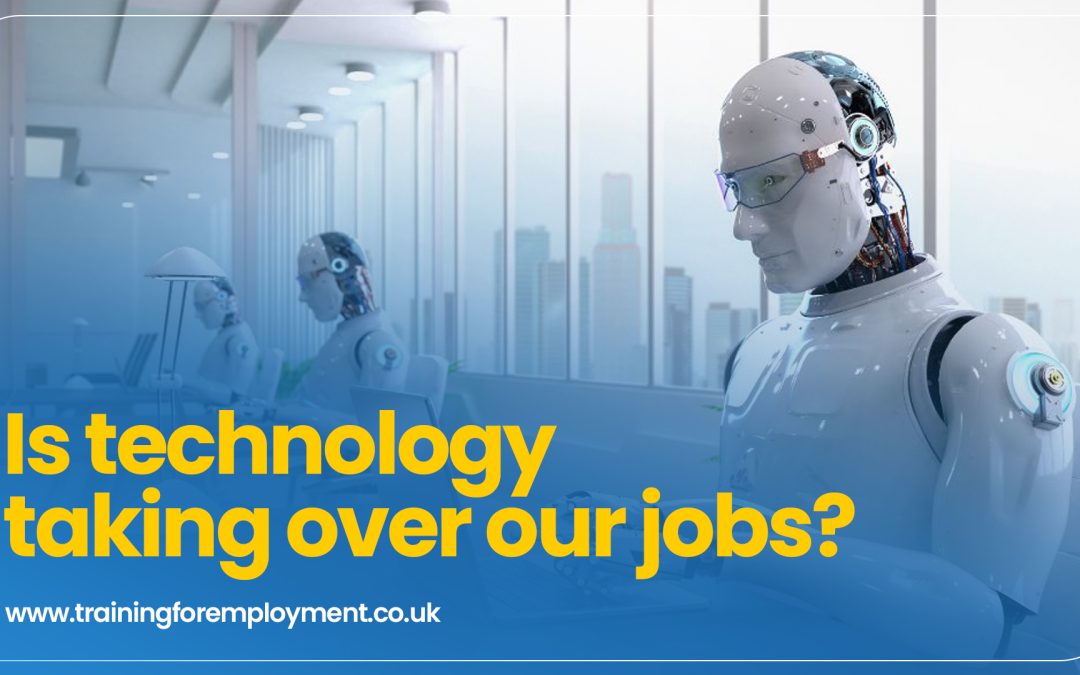Experts believe that the rise of robots in the workplace will account for unemployment rates greater than 50% within the next 30 years. Some are calling it humanity’s biggest challenge yet, as Professor Moshe Vardi of Rice University warns, “we are approaching a time when machines will be able to outperform humans at almost any task.” This highlights the rapid advancements in technology and the profound impact it may have on the future of work and society.
That all sounds rather worrying and, if true, it would appear that the countless science fiction films depicting a world run – and, often, invaded – by robots with artificial intelligence are painting a picture of the future that will start to feel very real indeed.
But is technology really going to take over the workplace and steal all of our jobs?
According to Jane Wakefield, technology reporter at the BBC, the following are three of the roles likely to be stolen by machines first.
Taxi drivers
The rise in self-driving technologies and services like Uber are already making their presence felt in the automotive industry. Similarly, if you head to Heathrow Terminal 5, you may end up catching a lift in one of the automated pods that delivers you from the car park to the airport.
We’re some way off autonomous vehicles becoming as regular a sight on the roads as a Ford Focus, but they are undoubtedly on the way and private transport seems an obvious destination for many of them.
Doctors
The ability for software algorithms to wade through data in order to find an answer is particularly beneficial in medicine and the treatment of diseases. The NHS is already trialling robots that assist with keyhole surgery and clever software is now able to spot the early warning signs of skin cancer.
Journalists
News is absolutely everywhere and consumed almost constantly via social media, and, while you may expect every story that hits the digital airwaves to have been penned by a journalist sitting at their laptop, it may surprise you to hear that many are written automatically by software.
Earning reports on websites like Forbes, for example, are regularly written by ‘robots’ capable of deriving pertinent information from multiple sources and compiling it into pre-defined news templates.
What is technology incapable of?
There’s something fairly consistent with the above jobs. All of them currently rely on the skill and careful direction of a professional human being. Would you want to be sat in a travelling car without anyone at the wheel while reading a magazine column written by a robot? How about a particularly emotional doctor’s visit spent staring at nothing more than a screen?
Robots and technology don’t have any form of emotional intelligence or the creative spark needed in so many industries, which is why they simply can’t replace us just yet. Here’s some of the things technology won’t be able to do any time soon:
-
Creativity. Almost every job requires creative thought at some stage. The most obvious application for this very human quality is in design services, but the ability to think creatively when problem-solving in any industry isn’t something robots are capable of.
-
Human interaction. Technology may be able to imitate human interaction, but that’s all it is – a simulation. If you’ve ever tried to hold down a conversation with Siri, you’ll know it’s nothing like chatting with a colleague or friend.
-
Humour. Technology will never be particularly good on the stand up circuit. Humour plays a vital role in the workplace as it keeps us all sane and improves employee morale considerably.
-
Tea making. Think how important tea is at the workplace. There will doubtless be tea-making robots in the future, but will they be able to make the perfect brew? We doubt it.
Conclusion
The pace of technology means we will, of course, see a rise in the number of jobs it replaces, but this will be a gradual process and is unlikely to be all-consuming. In a world driven by commerce, people need to earn a living. Without jobs, there is no humanity. This is why, as robots take over certain tasks, training for employment will play a vital role in helping individuals adapt. Our roles in the workplace will simply evolve alongside technological advancements, ensuring that humanity and innovation coexist.


